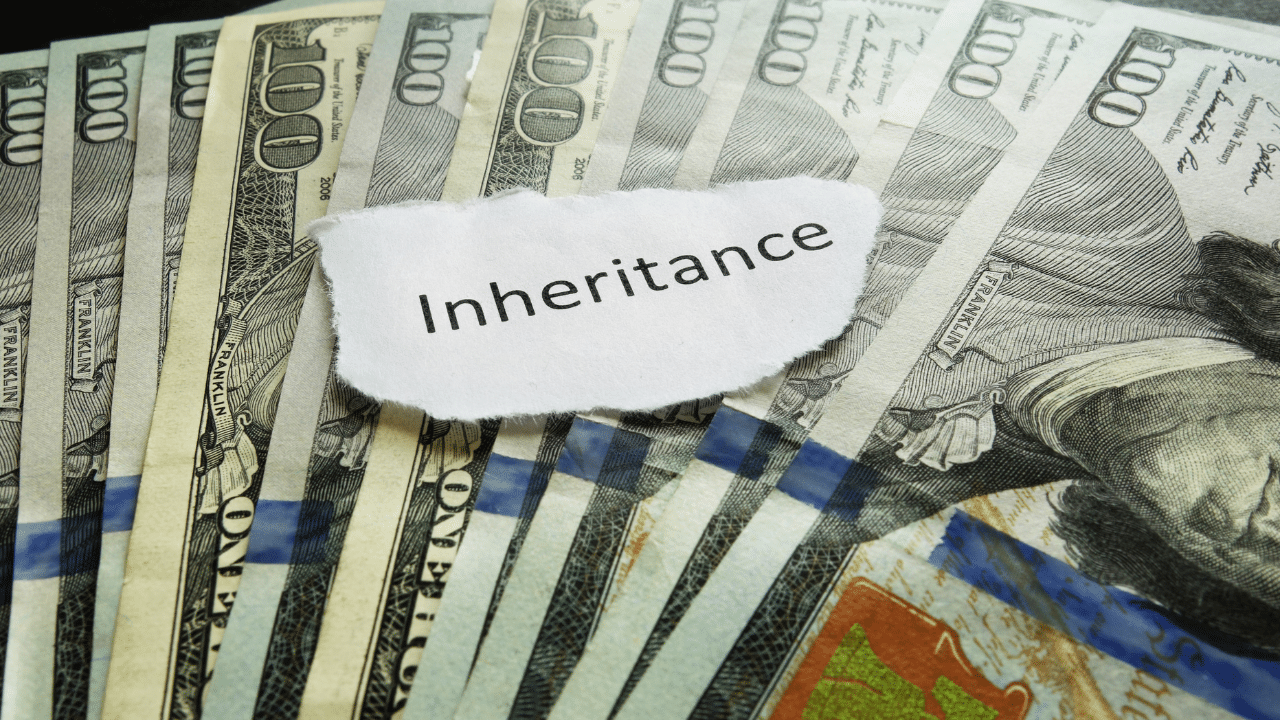Under Illinois law, all property, assets, and debts acquired by either spouse during the marriage generally become part of the marital estate, which the court will divide equitably in a divorce. However, there is a critical exception for inheritance. According to 750 ILCS 5/503, any inheritance received by one spouse—either before or during the marriage—is considered non-marital property, and is not subject to division.
But this protection isn’t automatic. One wrong move—like placing inherited funds into a joint account or using them for shared expenses—can strip your inheritance of its protected status and pull it into the marital pot.
That’s why protecting your inheritance must begin the moment you receive it, especially if you’re anticipating divorce or already involved in one.
In this blog, we will explain:
- How Illinois law treats inheritance and non-marital property,
- Common mistakes that could jeopardize your inheritance, and
- Steps you can take to protect your inheritance during a divorce.
How Illinois Law Treats Inheritance and Non-Marital Property
Under the Illinois Marriage and Dissolution of Marriage Act, specifically section 750 ILCS 5/503(a), non-marital property includes property a spouse receives through gift, legacy, or descent, or property obtained in exchange for such assets.
This protection extends beyond the inheritance itself. For example, if you use inherited funds to purchase a home, car, or other property in your name only, those assets may also qualify as non-marital.
However, the law is clear: Certain actions can blur these protections and inheritance and property purchased with inherited funds to be treated as marital property. Understanding these rules is essential to safeguarding your inheritance.
Illinois courts assess non-marital property status carefully under 750 ILCS 5/503, but the burden of proof lies with the spouse claiming the property is non-marital. That means thorough documentation is essential.
4 Common Mistakes that Can Turn Your Inheritance Into Marital Property
If you are not careful, there are mistakes you can make that could put your inheritance at risk of no-longer being your non-marital property. Some of those mistakes include the following:
1. Putting Inheritance Funds Into a Joint Account:
When one spouse mixes separate, non-marital property, like inheritance funds, with marital property, this is called transmutation. Transmutation happens when non-marital property, such as inheritance, is intentionally or unintentionally combined or comingled with marital property. This action changes the property’s classification, often leading the court to treat it as part of the marital estate.
Once transmutation occurs, it becomes nearly impossible to determine which part of the property or account remains non-marital. At that point, a court may decide the property has been converted or transmuted into marital property, making it subject to equitable division.
2. Using Inheritance Funds for Joint/Marital Expenses:
When you use inheritance funds to pay marital or joint expenses, courts often view it as a voluntary choice to contribute non-marital funds to the marriage. Even if you carefully track how the funds were used, a court may decide the money was a gift to the marriage—and therefore money you may not recover in a divorce.
3. Adding Your Spouse’s Name to Inheritance Property/Accounts:
Adding your spouse’s name to an inherited account or property title (even property purchased with inherited funds) can turn the property into marital property. Once you add their name, the law considers the property joint and assumes you intended to make it marital property.
4. Mixing Inheritance Funds With Shared Investments:
Again, this is when transmutation comes into play. If you put inheritance funds into a joint investment, the law assumes you intended to turn non-marital funds into marital property. For example, contributing inherited funds to a joint stock portfolio or retirement account can blur the lines between marital and non-marital assets.
Even if you carefully track the amount and date of your contributions, the non-marital funds will mix with marital funds, making them almost impossible to separate.
Under Illinois law, an inheritance generally remains non‑marital property—unless it’s commingled in a way that causes it to lose its separate identity. Courts examine whether the inherited funds are traceable; if they remain identifiable, they may still be seen as separate property (In re Marriage of Foster, 2014 IL App (1st) 123078). Read more here.
Visit our Chicago Property Division Lawyers page to learn about asset protection services
How to Safeguard Your Inheritance During and Before Divorce
In order to avoid the mistakes above, and protect your inheritance, consider these strategies:
Sign a Prenuptial or Postnuptial Agreement
If you have substantial assets, including inheritance, before your marriage, consider entering into a prenuptial agreement with your spouse to protect your pre-marital or non-marital assets. A prenuptial agreement can explicitly list your inheritance—whether already received or received in the future—as non-marital property and ensuring it remains separate and protected.
If you are already married and don’t have a prenuptial agreement, you can still protect your inheritance by entering into a postnuptial agreement with your spouse.
Place Your Inheritance into a Trust
Place your non-marital assets into a trust. A trust provides added protection by keeping these assets separate from the marital estate, and it can also offer estate planning benefits.
A trust allows you to control how and when the assets are accessed, which can be especially helpful if you anticipate a contested divorce.
As long as the assets remain in the trust, they are protected. However, withdrawing funds or property and mixing them with marital assets can cause the funds to lose their non-marital status. Consider consulting an estate planning attorney to guide you through the complexities of inheritance and divorce.
Keep Inheritance Funds in a Separate Account
Although this may seem clear and obvious, people often overlook it: Keep your inheritance in a separate account held in your name only.
If you receive an inheritance during the marriage, deposit the funds into an account or trust in your name only. Avoid mixing inheritance funds with marital assets by keeping them out of joint accounts, shared investments, or any accounts where marital income is deposited.
Maintain Proper Documentation
Keep thorough records of your inheritance: where the funds are deposited, how they are used, and how they are invested. Examples include bank statements, inheritance distribution letters, receipts for purchases, and property titles.
Clear documentation can help you trace non-marital funds, which may allow you to recover or receive reimbursement for those funds during a divorce.
If your inherited asset appreciates during the marriage, courts may evaluate whether that growth was due to personal effort or marital contribution. If it’s the latter, the appreciation could be treated as marital property. Usually passive appreciation is considered to be part of the non-marital asset.
Key Takeaways: Protect Your Inheritance
Protecting your inheritance during or before a divorce requires careful planning and proactive steps. Here are the most important strategies to keep in mind:
- Avoid Commingling Funds: Keep inheritance funds separate from marital accounts or investments.
- Sign a Prenuptial or Postnuptial Agreement: Clearly identify your inheritance as non-marital property to prevent disputes later.
- Place Inheritance in a Trust: A trust can provide an extra layer of protection for your assets.
- Maintain Proper Records: Keep detailed documentation showing how your inheritance is used and where it is kept.
Taking these steps can help ensure your inheritance remains protected, even during a divorce.
Protect Your Inheritance With Trusted Legal Guidance
Worried about how a divorce might affect your inheritance?
Need help preserving your inheritance? Contact Anderson Boback & Marshall to schedule a consultation and develop a strategic plan under Illinois divorce law.
We are Chicago’s go-to family law firm for high-net-worth individuals, business owners, and protective parents navigating complex financial and custody matters. Let’s safeguard what’s rightfully yours—before it’s too late.
Frequently Asked Questions About Protecting Your Inheritance
What if my spouse claims I “gifted” the inheritance to the marriage?
If you used inheritance funds for joint expenses or shared investments, the court may consider it a gift to the marriage. This means the inheritance could lose its non-marital status. To contest this, it’s critical to keep thorough records showing where the inheritance came from, how it was used, and how it was kept separate. An attorney can help trace these funds and argue your case in court.
What happens if I inherit money during my divorce?
If you inherit money while your divorce is ongoing, Illinois law generally considers it non-marital property. However, you must act quickly to keep it separate. Deposit the funds into an individual account and avoid mixing them with marital assets. Failing to do this could make it harder to prove the inheritance is non-marital.
What is transmutation of inheritance, and how does it affect my assets in a divorce?
Transmutation happens when non-marital property, like an inheritance, is combined with marital property. This can occur intentionally or unintentionally and may result in the property losing its non-marital status. For example, if you deposit inherited funds into a joint account or use them to buy shared property, the court might classify the inheritance as marital property. Proving the inheritance was separate becomes much harder, and it may be subject to division during the divorce.















